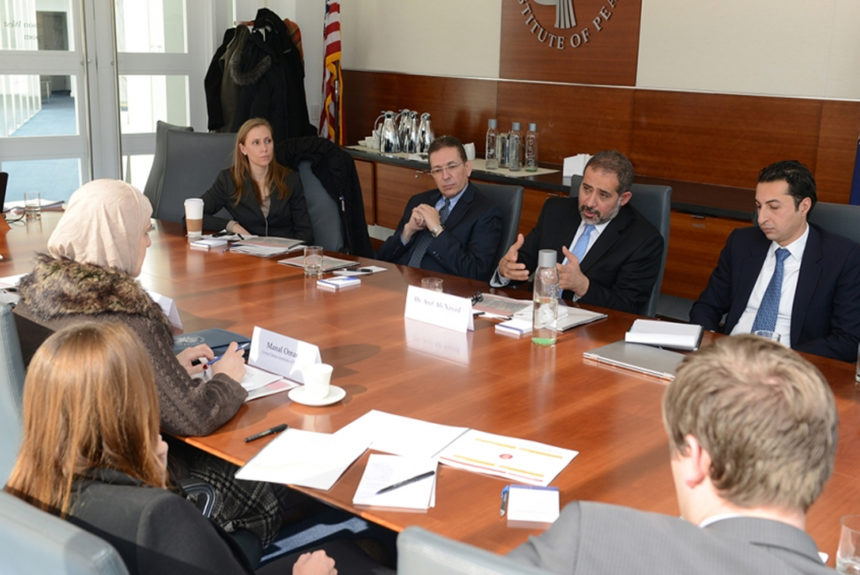LIBYA INSTITUTE FOR ADVANCED STUDIES – PRESS RELEASE
On February 3, 2015, the Libya Institute for Advanced Studies (LIAS) team, led by Chairman Dr. Aref Ali Nayed, participated in a work session with the US Institute of Peace (USIP). The goal of the session was to update USIP on the partnership signed in November 2013 in Washington, DC. Participants included Ambassador William Taylor, the acting Executive Vice President, Dr Linda Bishai, head of the North Africa Programs, and Manal Omar, acting Vice President for the Middle East and Africa Center at USIP. Also in attendance were officers and representatives from various US departments and agencies.
At the meeting, Dr. Nayed stressed that “the USIP partnership has been a pillar for everything that we do as an Institute, and we count on the support and expertise from USIP to help in these difficult times.” Due to the ongoing crisis in Libya, LIAS activities have had to adjust its programming to meet the demands of local and institutional stakeholders. As such, LIAS has been working in various ways to enable the country’s transition towards more peaceful prospects. The Institute has been cooperating with UNSMIL and others engaged in dialogue across warring tribes and parties. LIAS has also been cooperating with the Constitutional Drafting Assembly (CDA).
LIAS reported on the needs assessments it has provided to local councils with dire humanitarian needs. LIAS was able to link donor agencies to municipalities. Separately, the Institute has also facilitated the delivery of humanitarian relief to local communities.
As part of its visit to USIP, the LIAS team also launched its forward-looking Ihya Libya Vision 2023 platform. The interactive online platform (www.ihyalibya.com) will allow Libyans from across the country to comment on their prospects for the future. The vision was developed by a working group of Libyan youth, women and men, and experts, after conducting broad consultation sessions.
The LIAS team stressed that while the situation continues to cause great difficulties in providing safe and secure spaces for training and educational programming, the team has worked hard with partners across the country to mitigate polarization and conflict, and has supported various stakeholders through the provision of technical and logistical assistance wherever feasible.


